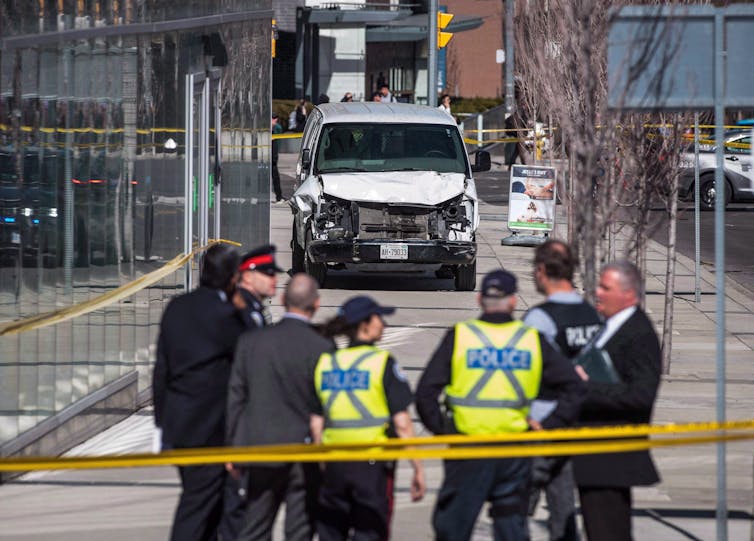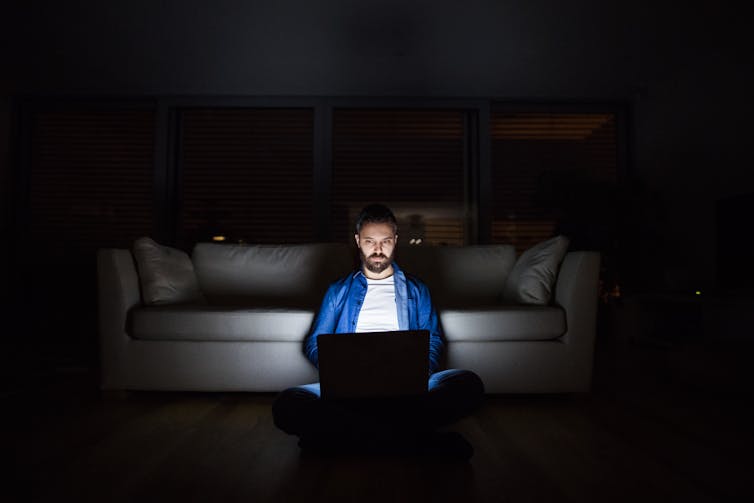Why mental health and neurodivergence should not be used to explain serious violence
In recent years, incidents of violence by ‘incels’ have raised questions about the dangers and worldview of people who support incel beliefs. In 2022, a standing committee of the Canadian Parliament examined the links between extreme violence and extremism threats.
Some recent studies have adopted a public health framework, which identifies incels as a vulnerable population in need of mental health and social support. In fact, mental health care is essential to help incels. However, mental health and neurodivergence should not be identified as factors influencing negative violence. Such interpretations can minimize the diversity of emotions and reduce the responsibility of incels for acts of violence.
Do vulnerable incels represent a public health crisis? Or an organization that creates the threat of gender-based violence and terrorism?
Who are incels?
Incels are people who believe that not having sex with women is a form of unnecessary oppression. They create a society that respects women and is mainly made up of men, who are angry at the denial of their “right” to have sex with women. These beliefs lead to the promotion of violence against women.
In Canada, there have been two major incidents of violence, which have drawn attention to the incel movement, in recent years.
In 2020, a 17-year-old killed a woman in a massage parlor in Toronto, in an incident that was ruled in 2023 as Canada’s first act of terrorism.
In the 2018 van attack in Toronto, Alek Minassian killed 10 people and another died more than three years later. He initially told police he was inspired by incels, but his trial later heard different accounts of his motives.

CANADIAN TRAVELER/Aaron Vincent Elkaim
In his court case, Minassian’s lawyers argued that his diagnosis of autism spectrum disorder prevented him from making rational decisions and realizing that his actions were wrong. This use of autism as an argument to avoid criminal responsibility angered autism advocacy groups and ultimately failed in court.
Mental health, neurodivergence and gender violence
Public discourse and interest in incels is linked to broader discussions about mental health and its relationship to gender-based violence and systematic emotional violence.
Recently, a study from the United Kingdom examined how risk can be predicted among incel people, examining the role of mental health, autism, ideologies and social networks.
The report presents the largest survey of self-identified incels to date, including 561 people who are UK or US residents and over the age of 18. It found that more than half of A third of participants have moderate levels of depression (39 percent) and anxiety (43 percent), as well as high levels of loneliness and anger. In addition, the report found that 30 percent of the incels that were investigated meet the clinical requirements for being referred to the diagnosis of autism, but not clearly the diagnosis.
Although the report cautions against establishing a causal relationship between autism and terrorism, focusing on this finding may contribute to the discredited claim that incels have a higher rate and likelihood of being diagnosed with and autism spectrum disorder.
Some media have cited the report, stressing that incels are 30 times more likely to be autistic than the rest of the population. Although the original report provides a wealth of information about incels, its findings may be misused to reinforce harmful narratives against people with autism. This can lead to stigma and false accusations that autistic people are prone to violence, radicalization or hatred because of their diagnosis.
Many people with autism see it as an important and positive part of their identity, rather than a disease that needs to be treated. Dismissing autism as a mental disorder that leads to violence reinforces accounts of autistic people being more likely to commit crimes when they are often victims rather than perpetrators.
A balancing act
How can we balance compassion for people struggling with mental health issues while holding violent actors accountable?
Mental health resources for individuals in incel communities are critical to preventing violence. One study showed that isolation may exacerbate the negative feelings that lead people to join groups of distressed people looking for friendship.
The UK study rightly concluded that interventions to address the mental health of the incel community require an effective risk reduction strategy. However, mental health drivers must be evaluated beyond individual conditions such as autism or mental health screening.

(Shutterstock)
We must also examine the systemic factors for poor mental health among those who are motivated to join the incel community, such as the role of technology and the internet to help improve and the need for social support programs for of people in vulnerable situations.
The UK report says “incels need mental health support rather than anti-terror intervention.” While mental health support is important, simply adopting a public health approach as a substitute for a public safety and counterterrorism perspective can be limiting.
It can describe incels as lone wolves in a way that ignores the incel community’s systematic approach to promoting violence. In addition, it rejects ongoing efforts to understand how forms of gender-based violence can support extremist views defined as extremism or terrorism. Public health and anti-terrorism efforts should not be seen as conflicts, but rather working hand-in-hand to identify the threats of gender extremism and work to achieve mental health strategies to reduce attitudes.
Dealing with incel violence requires a more fluid and integrated understanding of public health and counter-terrorism strategies to deal with this issue. Great care must be paid to balance responsibility for violence and compassion for people who need mental health support.
If you are struggling with mental health and well-being, we encourage you to seek help and resources. You can refer to this repository of mental health services around the world.
#mental #health #neurodivergence #explain #violence
